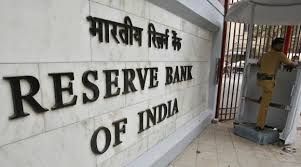 Putting its weight behind RBI in dealing with 'wilful defaulters' of bank loans, capital markets regulator Securities and Exchange Board of India is considering barring such entities from raising funds through stocks and other securities.
Putting its weight behind RBI in dealing with 'wilful defaulters' of bank loans, capital markets regulator Securities and Exchange Board of India is considering barring such entities from raising funds through stocks and other securities.
"Work is going on this front. . . We can say that you (wilful defaulter) can not raise the money from the markets," Sebi Chairman U K Sinha said.
To tighten the regulatory noose around wilful defaulters, the Reserve Bank has suggested to the Sebi that such entities should be prevented from raising funds through capital markets.
To facilitate such restrictions on entities found to have 'wilfully' defaulted on bank loans, the Reserve Bank is exploring ways to share details of these defaulters with Sebi on a real time basis.
"My own feeling is that we should go along with RBI on this, but the process will take some time," Sinha told PTI.
"There is a difference between NPA and wilful defaulter.
Wilful defaulter means that the bank has already come to a finding and the process has gone to a certain level before someone being called a wilful defaulter," he added.
As per RBI's proposal, such defaulters can be barred from raising funds through capital markets, as also through issuance of securities or other avenues under the jurisdiction of Sebi.
Currently, the information about wilful defaulters of bank loans are shared with Sebi and others, including credit information agencies
The proposal has come against the backdrop of spiralling bad loans in the banking system, especially fuelled by increasing number of wilful defaulters.
Sharing details on real time basis can better equip Sebi and other agencies to ensure that wilful defaulters identified by banks do not have an opening to raise further funds from gullible investors through the securities market.
Going by estimates, the amount of non-performing assets in the system is worth about Rs 2 lakh crore (Rs 2 trillion).
Both RBI as well as the government have raised concerns about high levels of bad loans in the banking system especially at a time when the economic growth has been below 5 per cent in the last two financial years.
Generally, a 'wilful default' refers to failing to pay back the loan despite the entity having capacity to honour the said obligations.
Non-repayment of loans aggregating to Rs 25 lakh (Rs 2.5 million) and above by such entities are considered as 'wilful defaults'.
Banks and financial institutions have been advised to examine all cases of wilful defaults of Rs 1 crore (Rs 10 million) and above for filing of suits as well as consider criminal action wherever instances of cheating/fraud by the defaulting borrowers have been detected, according to RBI.
RBI has asked them to strengthen their internal credit appraisal systems to minimise the risk of default.
Besides, the Bank Employees Federation of India also said recently that many corporates were defaulting on their loans.











 © 2025
© 2025